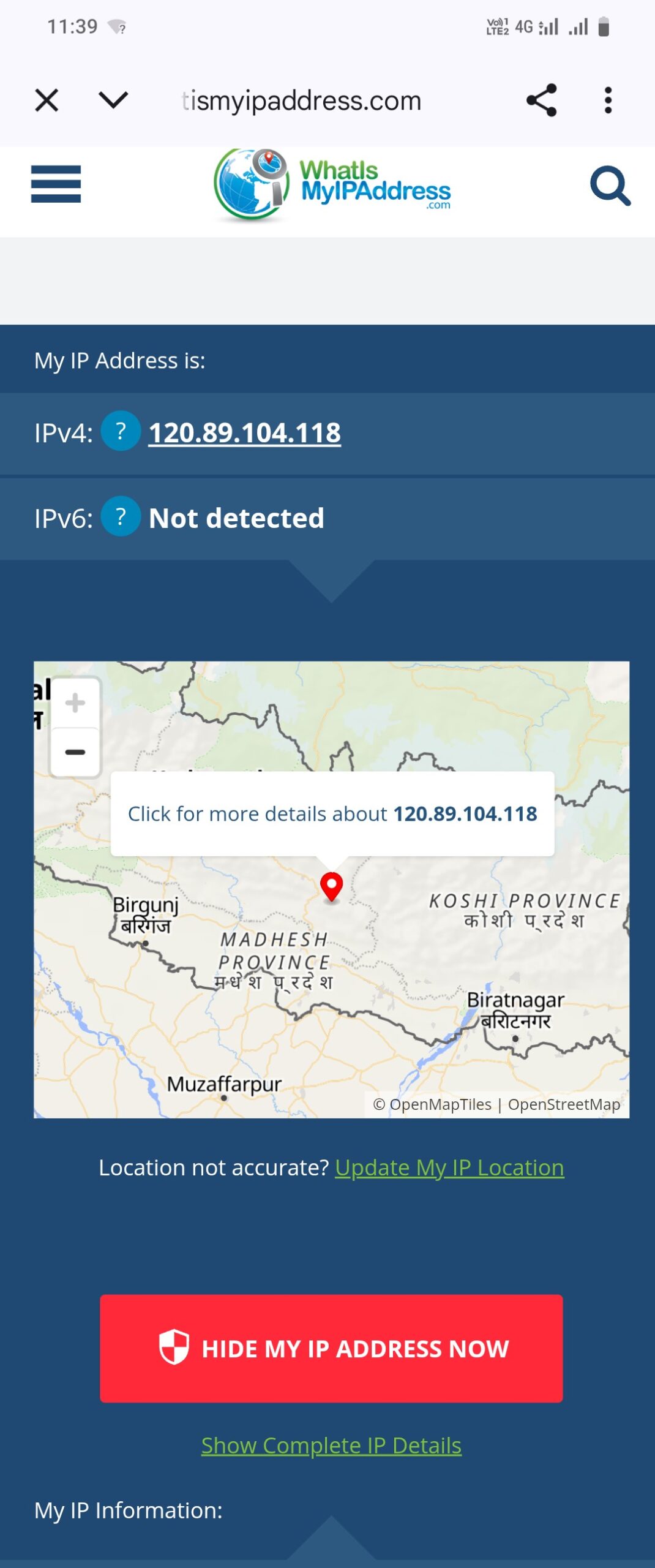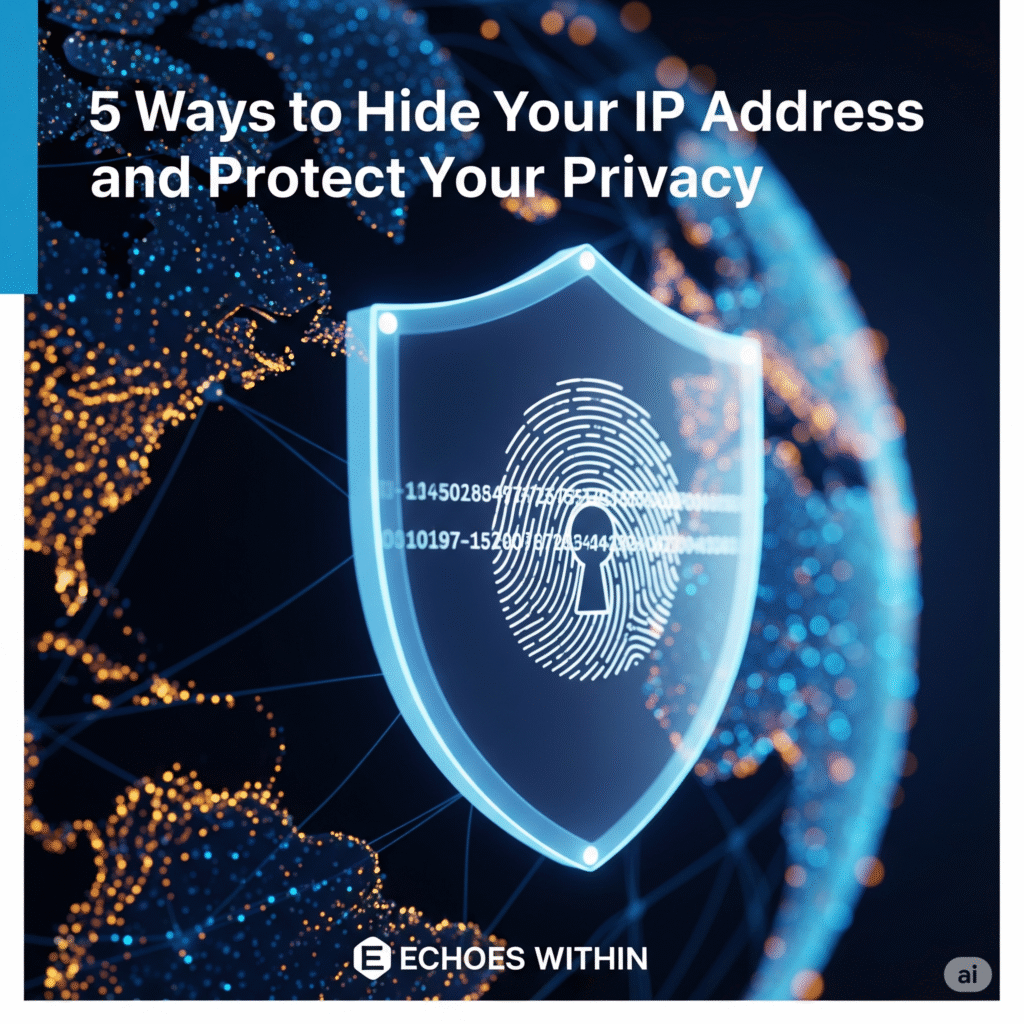Ways to Hide Your IP Address and Protect Your Privacy
In today’s digital age, your online privacy is more vulnerable than ever. Every time you go online, websites, advertisers, and even hackers can see your IP address — the digital ID that tells them where you are and what you’re doing.
The good news? You can take control of your privacy. Let’s explore five powerful and practical ways to hide your IP address and browse the internet with confidence.

1. Use a VPN (Virtual Private Network)
Without a doubt, the easiest and most secure way to hide your IP is by using a VPN. A VPN routes your internet connection through a remote server, masking your real IP and encrypting your data.
Why it works:
Hides your location
Protects against hackers on public Wi-Fi
Unlocks content in other countries
Pro tip: Choose a reputable VPN provider like NordVPN, ExpressVPN, or ProtonVPN. Free VPNs can be risky — always check the privacy policy.
2. Connect Through a Proxy Server
Another simple method is using a proxy server. It acts as a middleman between your device and the internet. The website sees the proxy’s IP, not yours.
However, unlike VPNs, proxies usually don’t encrypt your traffic — so they’re not as secure.
When to use it: For light tasks like bypassing content filters or accessing region-restricted websites.
3. Use the Tor Browser
If anonymity is your top concern, the Tor browser is a great tool. It routes your connection through multiple servers around the world, making it very hard to trace your real IP.
What makes Tor unique:
It’s open-source and free
Offers strong privacy protection
Used by journalists, researchers, and privacy advocates
Keep in mind: Tor can be slower than regular browsers due to its multi-layer routing.
4. Switch to a Mobile Network
Need a quick and temporary fix? Turn off your Wi-Fi and switch to mobile data. Your mobile provider will assign you a different IP address.
Why it’s useful:
Helps avoid temporary IP bans
Great in emergencies or while traveling
Note: It’s not a long-term privacy solution but works in a pinch.
5. Use Public Wi-Fi (with caution)
When you connect to a public Wi-Fi network, your IP changes to that of the network. This can help mask your home IP address — but it comes with risks.
Always protect yourself by:
Using a VPN while on public Wi-Fi
Avoiding sensitive tasks like online banking
Logging out of accounts after use
Final Thoughts
Your IP address is like a digital footprint — it follows you wherever you go online. Fortunately, with the right tools and habits, you can hide it and protect your privacy from prying eyes.
Whether you’re working remotely, studying, or just browsing the web, don’t leave your IP exposed. Start using a VPN, proxy, or the Tor browser today — and take the first step toward true online freedom
🔐 Remember:
In a connected world, privacy is power. Own it.
References for Reading:
🌱 Building Good Habits: Simple Strategies to Boost Productivity and Well-Being
The Silent Struggle: Why Student Mental Health Is at a Breaking Point
7 Ways to deal with jealous family members without ruining relationships—or your peace of mind


Your article helped me a lot, is there any more related content? Thanks!